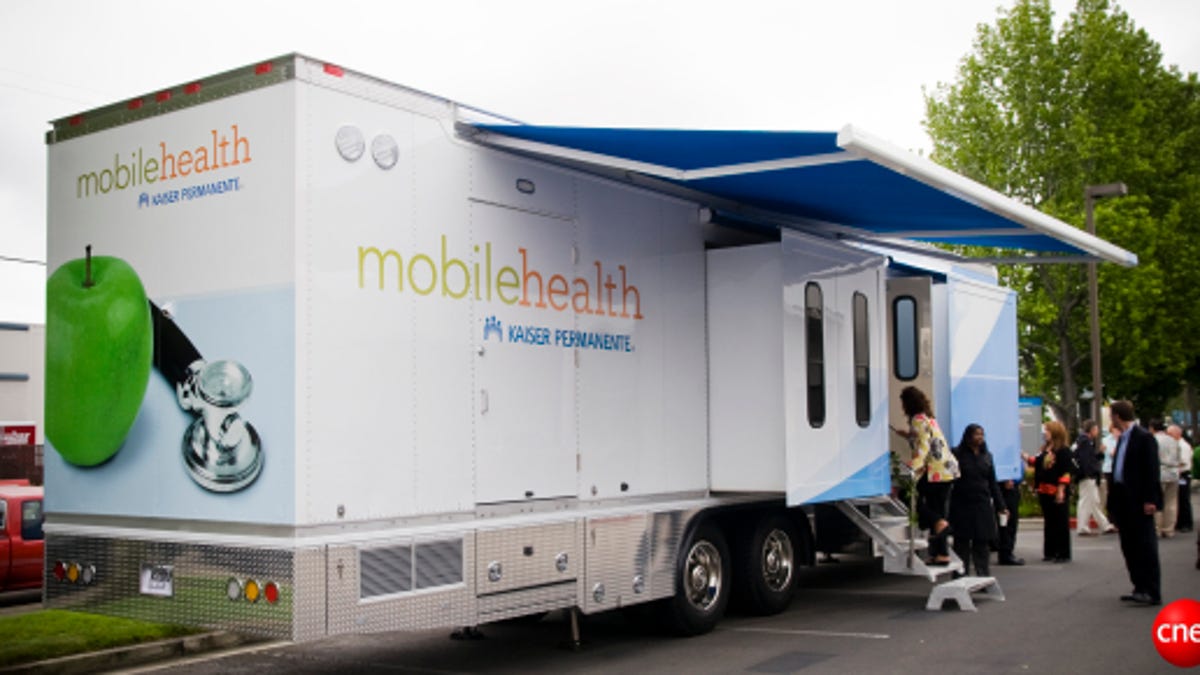Kaiser's high-tech doctor's office on wheels
The health care organization is about to ship a state-of-the-art mobile health vehicle to Hawaii, where it will offer a range of services to uninsured women.

Hawaii's qualified uninsured women and Kaiser Permanente members are about to get free health care from some of the most state-of-the-art technology available in the U.S.
Kaiser Permanente is sending over its first mobile health vehicle that's wired to the hilt with a digital mammography machine and computers set up to access electronic health records and use remote video capabilities.
"We have an entire network on wheels," says Lisa Victor, the IT service delivery manager for Kaiser Permanente Hawaii. This almost 500-square-foot futuristic semi-trailer sets sail from San Francisco to Hawaii's Big Island on Wednesday.
The goal is to reach women by thinking beyond the doctor's office and to physically bring the doctor wherever the patients may be. Hawaii is the perfect place to test this vehicle out. The Big Island has the largest land mass of all the Hawaiian islands, but also one of the most rural populations.
"We started looking at how to bring care to the patients," says Daryl Kurozawa, the associate medical director for Kaiser Permanente Hawaii. "This will allow us to bring care closer to them and hopefully give better care."
The roving health vehicle will bring on-site services to various Hawaii employers, including hotels and state offices, as it continually circles the island, spending a few days in each town. Hawaii has low mammography screening rates, so, Kaiser is working with community health centers to identify qualified uninsured patients and Kaiser Permanente members who need mammography screenings to detect breast cancer early.
"We know screening for breast cancer saves lives," says Kurozawa, "and if we screen earlier, life expectancy is longer." In its first year, the mobile health vehicle plans to have 5,000 mammography visits, 4,900 general health screenings, and nearly 2,000 uninsured visits. For the qualified uninsured population, there will be no charge to either the community clinics or the woman being screened.
Since all of the equipment on the vehicle is outfitted with telemedicine capabilities, the doctors can immediately send mammography readings to a specialist in Oahu, who can then remotely send the results back to the primary care provider.
"We have reduced office visits and specialist visits," says Susan Ganz, executive director of Kaiser Permanente Hawaii, "because people get answers right away from their primary care physician." Kaiser is also looking at remote dispensing of pharmaceuticals within the next year.
Routine testing along with immunizations will also be available on the mobile health unit, which will be officially unveiled on July 2 and see its first patient on July 21.
Updated at 6 p.m. to clarify that the mobile health vehicle services are limited to Kaiser members and uninsured individuals meeting qualifying criteria based on federal poverty guidelines.
Corrected at 11:45 a.m. Tuesday to fix an inaccuracy provided by the company about the size of the vehicle. It's almost 500 square feet.

